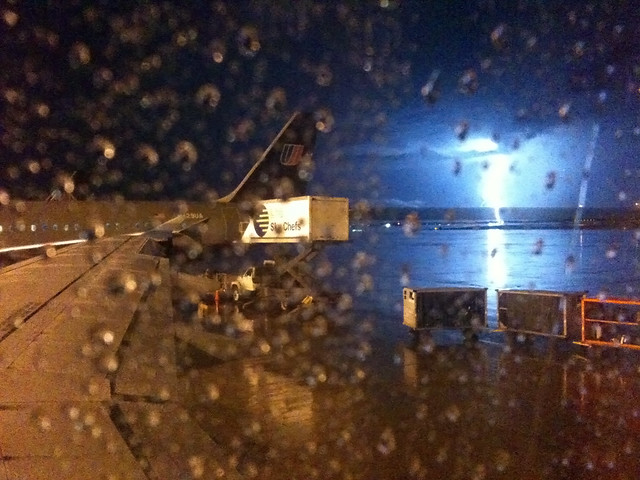Sleeping pilots, frequent lightning strikes and corpses in the cargo hold? God, I love air travel.
Vagabondish is reader-supported. When you buy through links on our site, we may earn a small affiliate commission. Read our disclosure.
After poring over the lengthiest lists of the airline industry’s deepest, darkest secrets — most from pilots, flight attendants and industry insiders — here are 24 things that you’d really rather not know about airplanes …
#1: Your Pilots Are (Probably) Sleeping
Pilots confess to sleeping about half the time. And a full third admit to waking up to find their co-pilot sleeping too.
#2: The Oxygen Masks Will Only Help You for a Little While
If the oxygen masks drop down, you might only have about 15 minutes (the minimum set by the FAA) of oxygen from the point of pulling them down. However, that is more than enough time for the pilot to take [the plane] to a lower altitude where you can breathe normally.
Bonus: Most systems generate oxygen through a chemical reaction – this can cause a burning smell in the cabin, however it is normal and to be expected.
#3: “New” is Just a Fancy Word for “Cleaned + Reused”
Those shiny “new” complimentary headphones definitely aren’t new.
I used to work for a warehouse that supplied a certain airline with items. The headsets that are given to you are not new, despite being wrapped up. They are taken off the flight, “cleaned”, and then packaged again.
#4: We’ll Now Be Dimming the Cabin Lights for the Crash Landing …
When a plane is landing at night, they dim the interior lights in case you need to evacuate upon landing. Since your eyes are already adjusted to the darkness, you’ll be better equipped once outside the plane.
#5: Some Airports Virtually Guarantee a Hard Landing
Via Joe D’Eon, a pilot at a major airline:
At some airports with really short runways, you’re not going to have a smooth landing no matter how good we are: John Wayne Airport; Jackson Hole, Wyoming; Chicago Midway; and Reagan National.
#6: But, That Hard Landing? They Meant to Do That
When you experience a hard landing in bad weather it wasn’t because of a lack of pilot skills but it is in fact intentional. If the runway is covered in water the airplane has to touch down hard in order to puncture the water layer and prevent aqua planing.
#7: The Ol’ Bait + Switch
One captain of a major airline notes:
You may go to an airline website and buy a ticket, pull up to its desk at the curb, and get onto an aeroplane that has a similar name painted on it, but half the time, you’re really on a regional airline.
The regionals aren’t held to the same safety standards as the majors. Their pilots aren’t required to have as much training and experience, and the public doesn’t know that.
#8: “You’re Now Free to … DO EXACTLY AS I SAY!”
The captain has almost limitless authority when the doors are closed. He is allowed to arrest people, write fines and even take the will of a dying passenger.
#9: Airplanes Are Struck by Lightning All the Time
Via USA Today:
Lightning regularly strikes airplanes. In fact, as far as anyone knows, the odds are that each airliner in the USA will be hit by lightning once a year. (Obviously some would be hit more than once, some not at all.)
Fear not though:
But, lightning has not caused an airliner crash in the USA or of a U.S. airline plane anywhere in more than 40 years.
#10: You Really Don’t Want to Know Where Your Water Came From
From a former Lufthansa cargo agent:
Do not EVER drink water on an aircraft that did not come from a bottle. Don’t even TOUCH IT. The reason being the ports to purge lavatory shit and refill the aircraft with potable water are within feet from each other and sometimes serviced all at once by the same guy. Not always, but if you’re not on the ramp watching, you’ll never know.
That includes the black, slimy coffee:
The drinking water used for making coffee, tea, etc. should NEVER be consumed. The holding tanks in these sometimes 60 year old planes are never cleaned. They have accumulated so much greenish grime on the walls that in some places it can be inches thick. This one is very known by all airline employees.
#11: … and Everything Else Is Just Plain Filthy Too
I worked for Southwest as a flight attendant. Those blankets and pillows? Yeah, those just get refolded and stuffed back in the bins between flights. Only fresh ones I ever saw were on an originating first flight in the morning in a provisioning city.
Also, if you’ve ever spread your peanuts on your tray and eaten or even touched your tray at all, you have more than likely ingested baby poo. I saw more dirty diapers laid out on those trays than food. And those trays? Yeah, never saw them cleaned or sanitized once.
#12: You Didn’t Have the Fish, Did You?
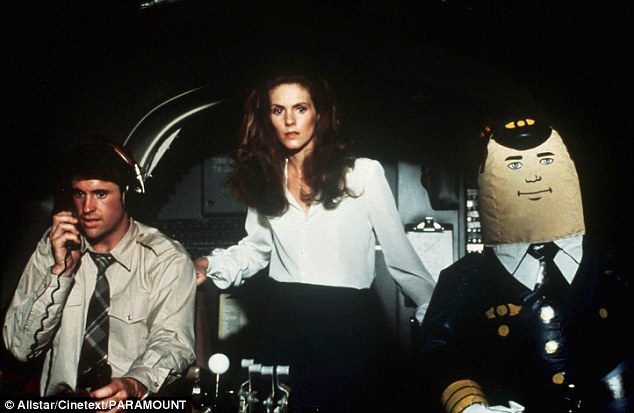
In case of possible food poisoning, pilots are served different meals and cannot share.
#13: You’re Probably Flying With Dead People (or Errant Body Parts)
The majority of domestic flights have human remains or organs on them. I work below wing as a baggage handler. Watch out the window for long boxes that say, “Head” at one end.
#14: Engine Down? That’s Cool, We’ve Got Time
Every airplane can safely fly with just one engine. Or, better yet, no engines:
Most aircraft have an amazing glide ratio, they don’t just fall out of the sky when they lose their engine like you would think they do.
Depending on the specific model most 747s can glide 2 miles over the ground for every 1000 feet they are above the ground. A Cessna 172 averages 9000 feet over ground for every 1000 feet above ground.
I s’pose that’s actually a good thing, but it’s still a terrifying thought.
#15: Why We Still Need Ashtrays
Ashtrays in the lavatories are mandatory equipment even though the FAA banned smoking on flights years ago. The reasoning is that if people do decide to smoke, they want them to have a place other than the trashcan to throw the butt.
#16: Don’t Be Surprised If Someone Spoils Your Mile High Rendezvous
You are able to unlock airplane lavatories from the outside. There is usually a lock mechanism concealed behind the No Smoking badge on the door. Just lift the flap up and slide the bolt to unlock.
#17: Your Pilot May Make a Lot Less Than You Do
One pilot notes:
I earn $21,000 in a good year. Most believe we’re just glorified bus drivers. Well, I was a truck driver before I was a pilot and I can say being a pilot is an infinite amount more complicated than being a truck driver.
I am a regional airline pilot. A first officer. A lot of you know 747, 777, etc captains who may earn $100k per year. It’s certainly possible, but it’s a long road to those wages. A good 15 to 20 years of earning low wages has to occur first.
And the worst part …
Some airlines don’t pay pilots or flight attendants for flights that cancel. Which doesn’t sound so bad until you start thinking about the safety implications.
A little short on the rent this month? Then I don’t see that hydraulic leak, I can’t afford to have the flight cancel.
Child needs to see the doctor? Maybe I don’t report the torn-up carpet that you might trip on in an evacuation, because carpet takes too long to replace–so the flight would cancel.
… not saying this happens all the time, because most crews are true professionals and can put their job ahead of their paycheck, but it happens enough to give you the goosebumps. Throw in some seriously low pay (sub $20K a year for many first year pilots) and you’ve got a subtle incentive to overlook safety issues.
#18: The Flight Crew Is Exhausted
It’s no secret that flight crews are often cranky. But that’s partly because they’re freakin’ tired:
The truth is, we’re exhausted. Our work rules allow us to be on duty 16 hours without a break. That’s many more hours than a truck driver. And unlike a truck driver, who can pull over at the next rest stop, we can’t pull over at the next cloud.
Which is why it’s important to know that …
#19: Bribing Your Flight Attendants Works. Every. Time.
Whether it’s something as simple as chocolates or some seriously mint Belgian chocolates from the duty free, present them to your flight attendants as soon as you board. “This is a long flight, you’re going to need something to stay sweet.” You’ll be treated like royalty for the duration.
#20: Leave Your Pets at Home. Seriously.
An airline refueler notes:
I cannot stress how your pets are treated. While your airline will take the best possible actions, some things cannot be avoided, like the noise on the ramp.
I cannot stand out there without ear protection, and imagine your pet sitting out there on the ramp waiting to be loaded onto the plane being exposed to the same amount of noise as I am.
#21: You May Be Flying on Empty
Extra weight costs the airlines money. And the easiest way to shave that weight is to carry less fuel. An anonymous captain told Readers Digest:
I’m constantly under pressure to carry less fuel than I’m comfortable with. Airlines are always looking at the bottom line, and you burn fuel carrying fuel. Sometimes if you carry just enough fuel and you hit thunderstorms or delays, then suddenly you’re running out of gas and you have to go to an alternate airport.
#22: Fragile? Must Be Italian.
As if you needed another reason not to check your bags, a baggage handler notes:
If it says “fragile” it’s getting thrown harder. If it says “this side up” it’s going to be upside-down. We have to fit freight and 100+ bags in a cargo pit. It has to fit how it’s going to fit.
I will tell you that when we see “I heart baggage handlers” bag tags, we take special care of your shit.
#23: Might Wanna Recheck Your Seat Cushion
According to AirfareWatchdog.com, life vests are a rather popular souvenir for (sick, twisted) travelers. Next time you board, double-check that yours is where it’s supposed to be.
#24: The Weather Is Bad. No, It’s Really Bad.
Airlines make money when their planes are actually flying. If you’re grounded because of bad weather, take their word for it. You don’t want to take off.
If your flight is delayed due to bad weather, believe the pilots. Don’t rely on a friend’s word that it’s good weather in your destination – there could be a huge thunderstorm on the way over.
(h/t: Reddit, Readers Digest and USA Today)


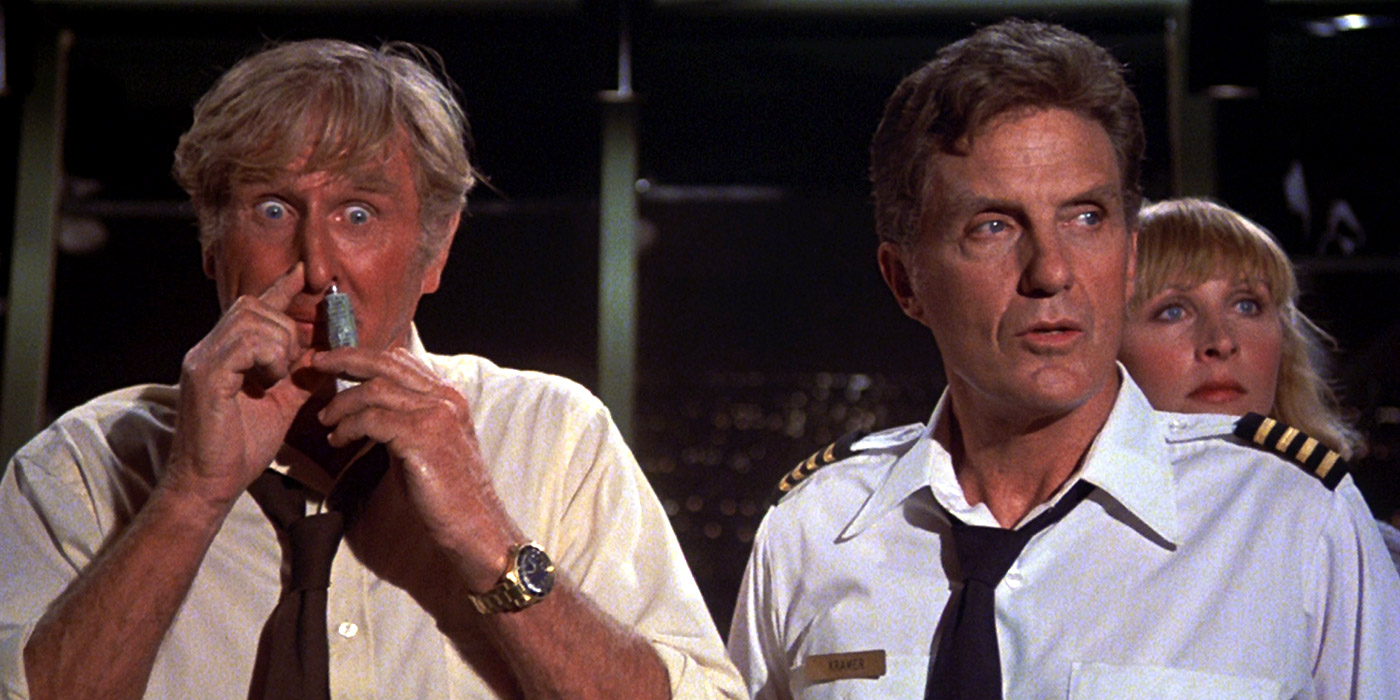
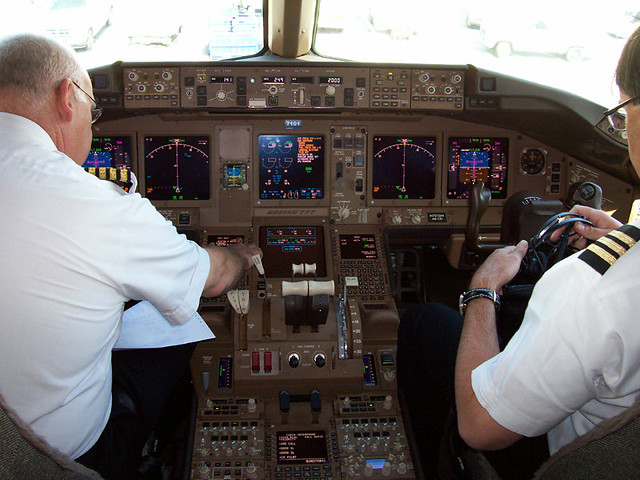

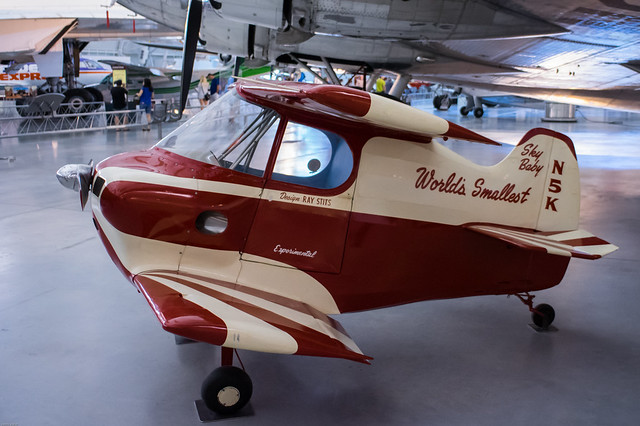
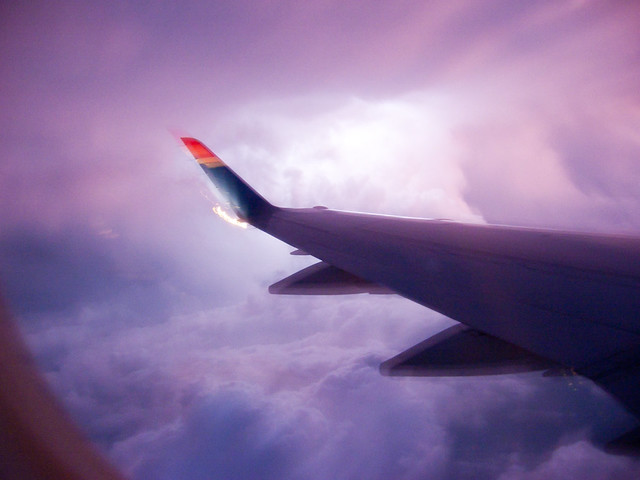
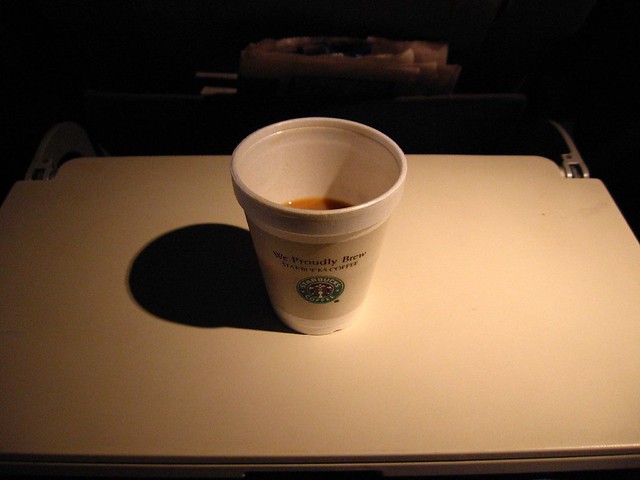
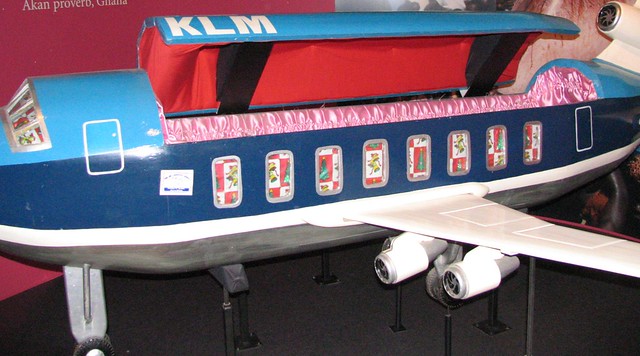
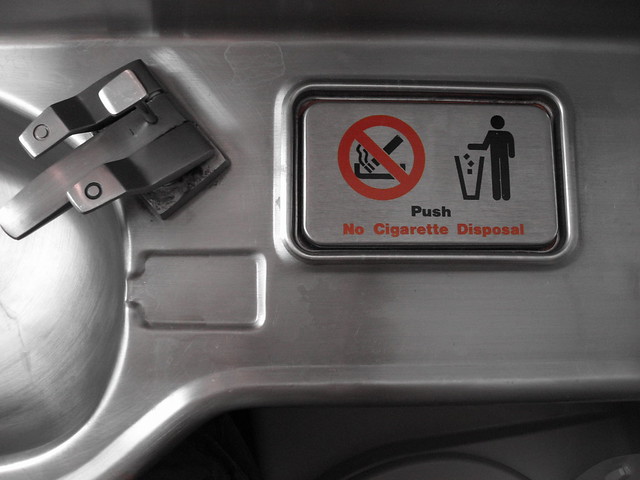


![American Airlines [does not] care about your baggage!](https://farm5.staticflickr.com/4034/4651936288_478a2fc0e4_z.jpg)
